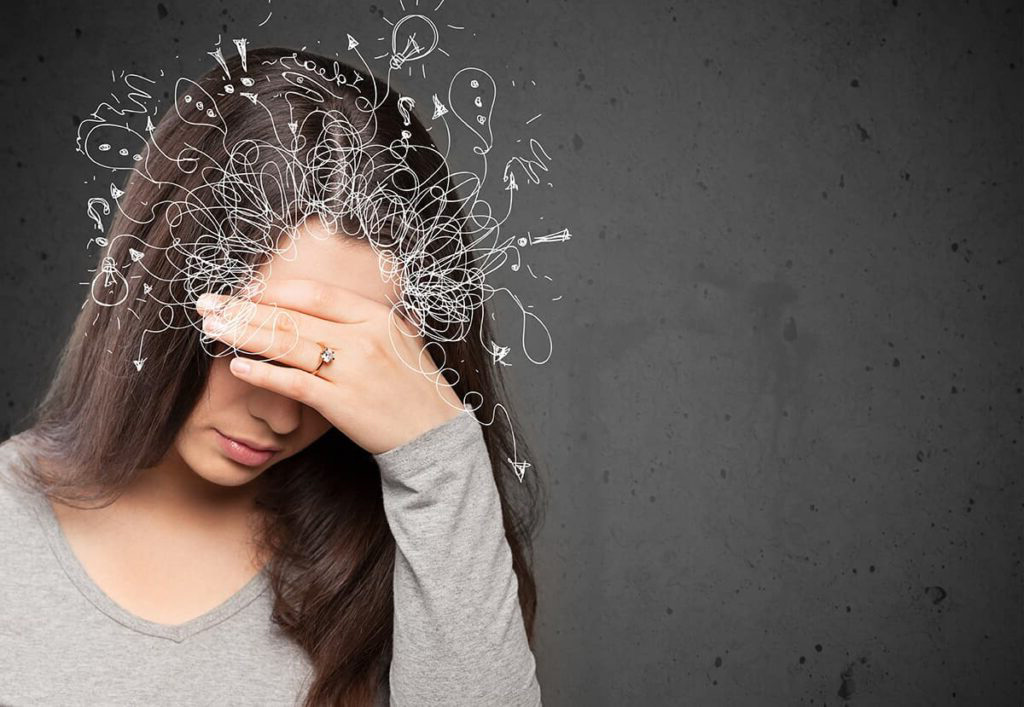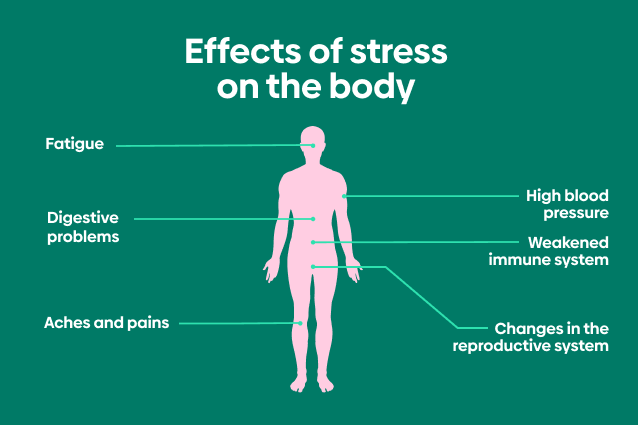What are the different types of stress? Stress serves us well in situations when our senses kick into alert to respond with quick reaction such as in situations where danger can pose threat to the safety of a person or the security of a loved one. What are the different types of stress? Stress can in fact give us the ability to take calculated measures to preserve our existence and peace of mind. An experienced mountain climber, on a challenging climb, can make use of the stress hormones released to work toward their favor. The stress brought about the excitement or anxiety of new trails as they climb gives them the ability to employ skills that will keep them safe as they ascend the mountain.
They are prepared and have a general idea of what to expect during the trek and are experienced enough to understand that there things to watch out for throughout the expedition. On the other hand, an inexperienced individual, if they we to be challenged go up the same mountain by way of the same trek as the experienced ones, the latter will display a more alarming spike in the release of stress hormones. Increased levels of stress hormones released could not only affect the physical balance (labored breathing, constricted muscles, strained bowels) could disorient the novice “hiker” leading them to make uncalculated deductions that could be detrimental to their survival.

What are the different types of stress? Stress can be categorized in groups and we shall talk about these categories separately as we provide some examples which may help lead the reader to understanding the gravity of each sort of stress as well as some situations which may trigger stress.
Types of Stress

Chronic Stress
What are the different types of stress? Chronic Stress can be detrimental to the health of an individual. It contributes to a host of grave illnesses that are chronic, severe or life-threatening. Another reason for chronic stress is the presence of numerous problems within the family. Coming from a dysfunctional family makes people step up in ways that sets off their fight or flight instincts and if not managed in a way that is effective for the individual, can develop all sorts of bad situation responses by the patient suffering stress in this environment.
It is not unusual to hear about family members of all ages showing symptoms of stress because of the unconventionally challenging lifestyles each of the family member lives on a daily basis. Couples suffering marital problems are candidates for stress.
Being unhappy in one’s job, whether it is a bad paying one or employment that goes against your beliefs or morals, is another source of mental anguish that is caused by and exacerbated by stress. Heart and lung diseases as well as some cancers are attributed to long term stress.
Episodic Acute Stress

What are the different types of stress? Individuals who have episodic acute stress are people who seem to be in constant crisis mode. They are individuals who express strong reactions to what they would perceive as a negative situation and respond in an equally negative manner. They are the ones who worry about things that are possible and imagined. It usually have a bleak outlook about things and feel helpless. The problem with those with episodic acute stress is that this is usually because they have come to accept a sort of defeat about stress being a part of life.
Acute Stress
What are the different types of stress? Acute stress is another form of stress that is not as bad as it sounds. Acute stress is basically the common responses of our bodies and minds to a demanding situation. It can be as unusual and accidental like a near miss, road incident. This can also be a response to the defense mechanisms of the body when in an argument with family member. It can be the physical and mental reactions your body reacts to on the micro level when undergoing some sort of employment pressure.
Severe cases of acute stress can stem from traumatic experiences, like if a person becomes a victim of sexual abuse. a violent crime or traumatic experience. People, who develop acute stress suddenly because of a sudden and very unpleasant experience, can lead for the person to suffer mental health issues, like depression and PTSD. On a more positive note, isolated episodes of stress allow for the body and brain to learn from the situation, making the individual better able to make better future decisions.
Stress Triggers

All of us deals with stress differently, and stressors are different for each one of us. One stressor is not necessarily what the stressors would be for another. In most cases, identifying what elicits the stress in us can be pretty straightforward and obvious. Stress can stem from a bad relationship, an argument with someone, subpar working or living conditions, and suffering from health issues are just some of the more obvious reasons for the onset of stress. In other cases, determining the root cause of the stress being experienced is more difficult.
Finding the origin of your anxiety can be a little more challenging especially if the stress does not manifest itself in forms we recognize and understand. If you find yourself feeling more stressed out than usual try keeping a journal of what sets off the stress hormones in you. This is a good way of recording what it is that causes you uninvited stress and worry.
Recognizing the Patterns
When we start recognizing the patterns, this will be when we would be better able to understand what triggers stress for us. When we are able to understand these, then we shall be better equipped to handle the stress.
Some of the things that we worry about is what stresses us out on a daily basis. These could be mundane things and others are more pressing matters that either needs our attention or situations that bring about anxiety that we have no control over. Research has shown that an average person would suffer between two hours and thirty minutes stressing out about things such as, where to have lunch, and what to have for lunch. We worry about how we look and what to wear. Most worry if there is enough gas in the car. We fret over payments we need to make and if there is enough food in the refrigerator.
These concerns are just some of the more common causes of stress that we can identify. For those who work, some of their more stressful concerns include job satisfaction, workplace environment, and keeping balance between home and work life. More and more, keeping a work-life balance has become very important to working individuals. Not surprisingly, working people are very concerned about how they are managing and balancing their daily lives, including family, career, and self.
Good Stress vs. Bad Stress
What are the different types of stress? Stress isn’t all bad and in fact in tiny doses some types of stress can actually motivate us to work better, even smarter, when under pressure. Now, operating under pressure for an extended length of time will indeed start taking a toll on the body and mind if left unchecked. Under these conditions the individual begins to operate from the 2nd stage of stress which is forming a sort of adaptation to the given situation.
As we deal with any given stressful situation on this level, we begin to show signs of our physical bodies taking on more and more of the stance of resistance. Needless to say, this is when the condition starts to become troublesome.
The important thing right now is to take back what you can by informing yourself of what it is that you are facing. By naming the condition, you have just given yourself the chance to start on a path that will help you get through stressful situations by way of learning to recognize the symptoms of chronic, or recurring, stress. This recognition, allows us to take measures to lessen the side effects of stress, in some cases, through some techniques one can apply.
Effects of Stress

Stress is the way your body is signaled on how to survive any given situation which is out of the ordinary of your routine experiences. Stress physically signals your body to respond to some kind of internal or external demand or threat which swiftly puts us in heightened senses alert, no matter if the situation is imagined or real. In a way, stress is your body’s way of protecting you by helping us to stay focused and alert. A good example would be stress under a medical emergency; under this kind of demanding events, one can help them by staying focused and getting the help they need. Or to react in a fashion that would put them out of a dire situation like an accident. Stress can in fact, in certain situations help us, recognize a threat and react accordingly.
Stress is what actually brings you through a presentation, keeping you on your toes. It allows you to meet expectations put upon your shoulders by helping sharpen concentration. It is what helps you focus when studying for a big exam. However, there is a limit to everything and when all of these start compiling and starts to become overwhelming for the individual this is when stress becomes detrimental to our health.
Bodily Effects
What are the different types of stress? Stress not only affects the body in manners like shortness of breath, quickened pulse and heartbeat. The release of stress hormones, like cortisol and adrenaline, sets your physical body on emergency mode ass your blood pressure rises, your muscles tighten and your senses are on high alert. All these in work together heightens our energy and strength, speeding up our reaction, in preparation for a response.
Operating on this level on a prolonged period of time can begin affecting the normal functional balance of our body, which may lead to more serious medical conditions. In other ways, prolonged stress can alter the mood of a person, it can affect ones productivity and take a general toll on the person’s quality of life.
The nervous system, for all the wonderful work it does for us, is not able to recognize the difference between physical and emotional threats.
Keep In Mind
It also interrupts with our ability to decide what to do or act too strongly to a situation. Chronic stress can commonly lead to more serious health issues if it disrupts your body equilibrium often enough.
Stress suppresses the immune system of a person whilst disrupting the digestive as well as the reproductive system of an individual. A person who experiences chronic stress has a higher likelihood of developing more serious diseases and are at higher risk for stroke and heart attack. Stress can induce speed up the aging process of a person caught under the pressures of stress. Not only does it display itself in terms of outward, physical appearances, in form of perhaps wrinkles or dark rings under the eyes, stress can in fact trigger off more serious conditions because your organs and systems of a person who undergo chronic stress are on perpetual overdrive. Want to know more about how you can prevent stress? Check out the video below:


 I love to write medical education books. My books are written for everyone in an easy to read and understandable style.
I love to write medical education books. My books are written for everyone in an easy to read and understandable style.